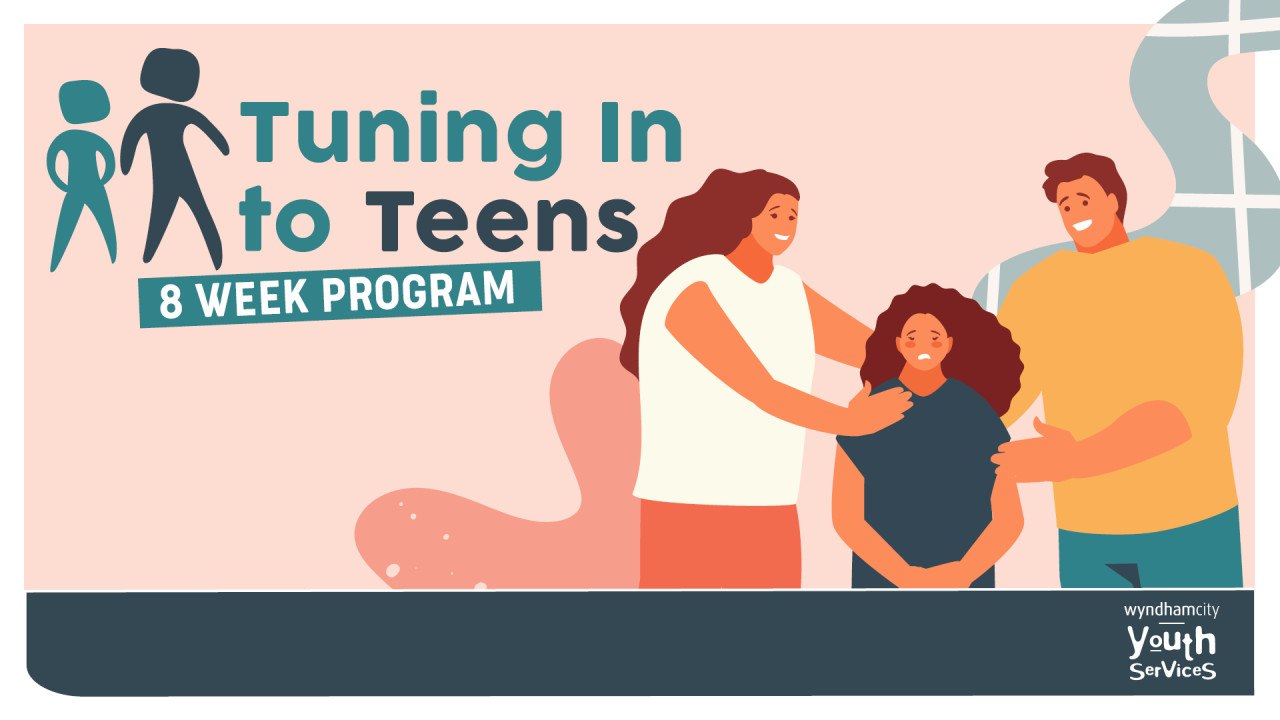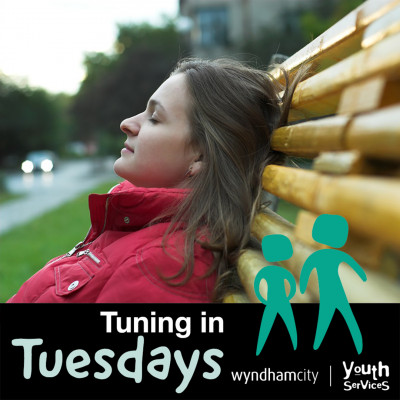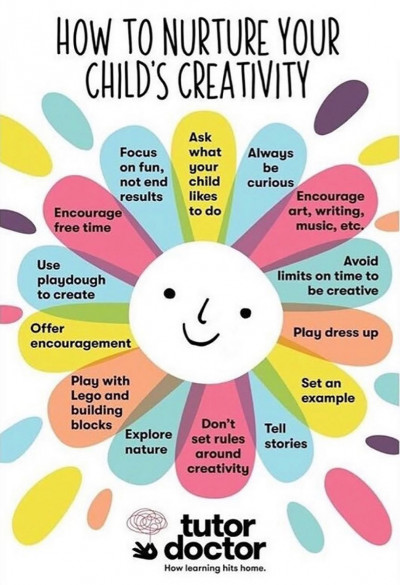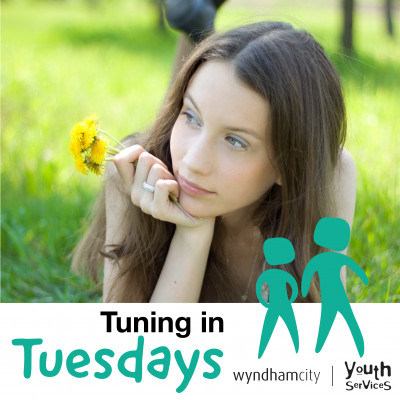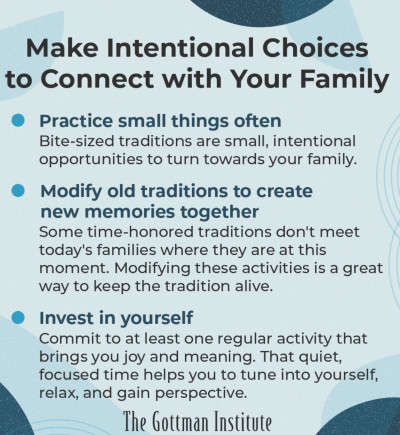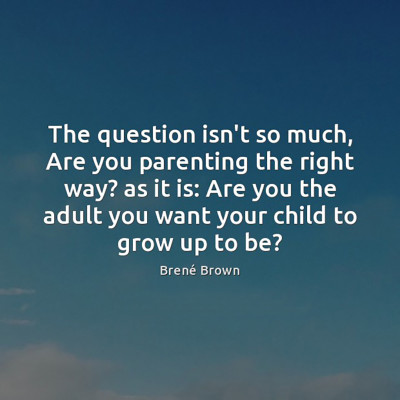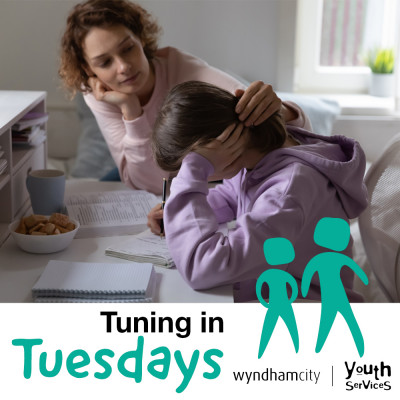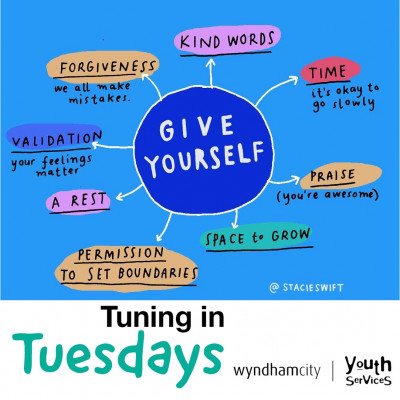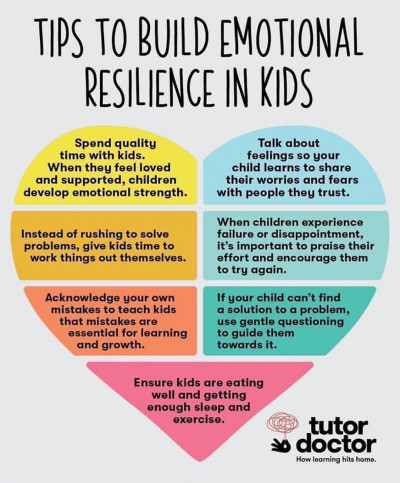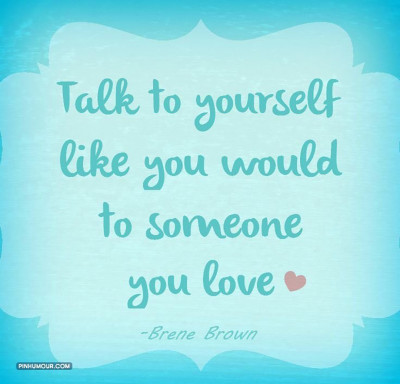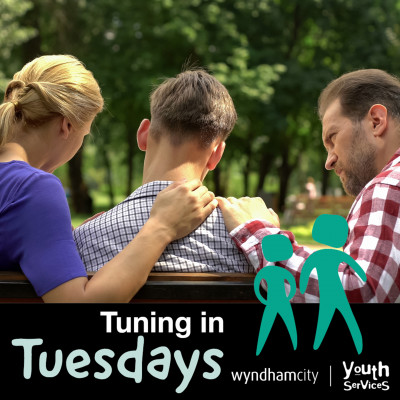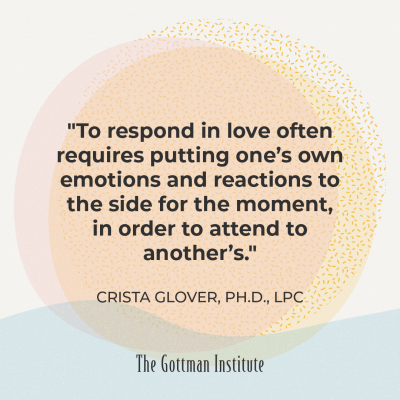Tuning in to Teens™ is a parenting program that focuses on emotions and is designed to assist parents to establish stronger relationships with their teenage children. The program provides parents with a greater understanding of their teen's emotional experiences while teaching specific skills that can assist in being supportive, empathic and staying connected with the young person. It further aims to improve parent's emotional awareness, regulation and communication style and provide them with an opportunity to reflect on their own emotion socialisation experience.
Tuning in to Teens™ aims to prevent problems developing and enhance emotional and behavioural functioning.
Youth Services staff facilitate a number of programs throughout the year. In order to be eligible for the program, you must live-work-study or recreate in Wyndham.
Program Information
Wyndham Youth Services team facilitate Tuning Into Teens information sessions both in person and online.
If you would like to know more please watch the video which will provide you will provide you with some introductory practical skills to connect with your teen. The video will also explore the realm of emotional intelligence; it’s importance and how to support its growth and development in your young person.
Please see dates below of the FREE 8 week program, if you would like to sign up please email us at tuningintoteens@wyndham.vic.gov.au the following information:
- Full name
- Contact Number
- Age of teen/s
- Suburb you live
- Date of program you would like to join
Term 2 - FULLY BOOKED
Location: Online
Date: Tuesday 28 April - Tuesday 16 June
Time: 10am-12pm
Term 3
Location: Online
Date: Tuesday 21 July - Tuesday 17 Sep
Time: 10am-12pm
Term 4
Location: Online
Date: Wednesday 14 October - Wednesday 2 December
Time: 4pm-6pm
Please note: we only take self-referrals.
If you have further questions about the program you can either call the Youth Resource Centre on (03) 8734 1355 or email tuningintoteens@wyndham.vic.gov.au.
Tuning into Teens Information Session Webinar
To learn more about what the Tuning in to Teens program offers, please watch our pre-recorded Tuning into Teens Information Session Webinar.
Tuning in to Teen Tips
Acknowledge, Empathise and Validate Emotions
In building a safe environment of trust, understanding and validation, young people will be more inclined to share their emotional experiences, no matter how unpleasant the emotions may feel for them.
The good news is you don’t need to know the perfect thing to say or to have all the answers. A lot of these suggestions are non-verbal responses that allow your young person to see that you care and are willing to sit in the discomfort with them.
Suggestions:
- Sit on the couch and rub their back or give them a hug
- Share affirming facial expressions and body language such as nodding, tilting your head, smiling (whatever feels natural)
- Say things like “that sounds really tough”, “I’d feel sad if that happened to me too” or “I can see how that would have been really scary”.
Remember that we are focusing on our young person’s emotional experience and not the situation itself.
It is also important to remind ourselves as caregivers to check in with our own emotions to ensure they do not take over.
Considering Your Words
Have you ever said something in the heat of the moment and then had regrets later? The strategy we are sharing this week is to build in a pause and consider your words.
When we are experiencing heightened emotions our logical thinking brain is offline. Therefor if we respond when feeling heightened, we will be responding without forethought for the impact of what we might say to the other person.
It always feels better when we are able to think about what we want to say before actually speaking.
Have you ever been in a situation where your young person has said or done something that has made you feel extremely angry or sad? If your answer is yes, then building in a pause is a helpful strategy for you to use in your home.
How do we build in a pause? The first step is to recognise the emotion you are feeling. If you’ve recognised that you are feeling triggered by the situation, take a few deep breaths. Make the decision to do something to calm yourself down and regulate this emotion. That might be a cup of tea, unpack the dishwasher or sit outside in the fresh air.
The key here is to recognise when you are feeling able to respond in a way to the situation that you will feel proud of later. This will be different for everyone.
You can then approach the situation with your logical thinking brain as opposed to your emotion brain.
You may re-enter the conversation with your teen by saying “I had to take a moment as I was feeling very hurt by… so I took a short walk.”
Building in a pause is not only helpful in regulating our own emotions it’s also beneficial for the young people in our lives. By building in a pause you are role modelling emotionally intelligent behaviour, which we know is one of the ways in which young people develop their emotional intelligence.
We also know that once words are spoken, they cannot be retracted. When responding in a highly emotional state, we could damage the relationship we have with the young person. By introducing the “pause”, we are forging a stronger relationship with our young person through interactions built on mutual respect and that creates a level of trust and predictability, not to mention your message gets across a lot clearer and is received with open ears rather than folded arms and a raised voice.
If you are interested in hearing more about the Tuning in to Teens Program or would like to contact us feel free to email us at tuningintoteens@wyndham.vic.gov.au
Creativity
This week the Tutor Doctor's image around creativity really stood out.
‘Don’t set rules around creativity’ is something that is really important for young people, as creativity can help open many avenues to gain skills and knowledge.
We encourage you to ask your young person what they like to do. This will help you to tune in at a later stage and encourage them to use these creative outlets. This will look different for every family.
If you are interested in hearing more about the Tuning in to Teens Program please email us at tuningintoteens@wyndham.vic.gov.au
Image Source: Tutor Doctor
https://www.tutordoctor.com
Allowing Your Teen to Solve Problems
This week we encourage you to take a step back and allow your young person to problem solve on their own.
It’s important for us to slow down and allow our young people some space to work things out for themselves. We know how hard this can be sometimes, because as parents we want to be there for them and make sure they make the right choices.
If you find that your young person is struggling to problem solve, it’s OK to guide them through the process and use words such as “I’m wondering if…” or “Hmmm, what would you think if we…” and see what they come up with in their own. You may be surprised.
Please remember if your young person’s safety is at risk, we can problem solve and take the lead.
If you are interested in joining the next Tuning into Teens eight week course, please contact us at tuningintoteens@wyndham.vic.gov.au
Creating Time to Connect
This week, we couldn’t go past The Gottman Institute’s image around ensuring we are creating space to connect with our families.
This can be very challenging over the holiday season, so we thought that a little encouragement to remember what really matters couldn’t go astray.
Sometimes, the smallest amounts of time can build connection. “How?” might you ask. We encourage you to ensure that you keep in mind the small things that your family do together that are enjoyable for all. It might be a trip to the shops, sharing a meal together or even watching your favourite movie and eating popcorn. As things speed up, it is often easy to forget about these rituals that build connection and replace them with huge to do lists and powering through those.
When we connect, we feel less overwhelmed and are able to emotionally support one another better. So, this holiday season, try and take some time to think about what builds stronger connections and meaningful relationships in your home and remember to take some time for yourselves as well.
When our tank is empty, we aren’t able to give to those around us, so remember to fill it up by self-caring.
We would love to hear how you went!
Email us at tuningintoteens@wyndham.vic.gov.au
Merry Christmas and a Happy New Year from the Tuning in Tuesdays Team.
Image source: The Gottman Institute
https://www.gottman.com/
Role Modelling
This week we gravitated towards a quote from Brene Brown.
Often we put so much pressure on ourselves to do everything right that we can end feeling stressed and overwhelmed.
Have you ever asked the question “Am I doing this parenting thing right?” Chances are, if you have felt this way, you will find this week’s tip very handy.
The reality is, it's not always about how we parent, it's about what we role model to our young people. Role modelling is one of the ways our young people learn the all-important emotional intelligence.
Ask yourself “When I’m stressed, how do I react?” “Is this how I want my young person to react when they are experiencing the same emotion?”. If your answer is no, the good news is it's never too late to start changing our emotional reactions in order to support the positive development of our young people's emotional intelligence. What our children see is what our children will mirror when it comes to emotional experiences.
This week, we challenge you to think about how you react to emotional experiences and make changes where you think there’s room for improvement.
For more information please contact tuningintoteens@wyndham.vic.gov.au
Image Source: Brene Brown
https://brenebrown.com/
Take Time for Yourself
To be able to give the best of yourself to your family, you need to first take time for you. We know this is easier said than done, so we wanted to give you a few tips.
Do your best to try one of these things each day, even if it’s only for 10 minutes:
- Going for a walk with a friend or someone you live with (while adhering to social distancing requirements)
- Take your opportunities to exercise.
- Practice gratitude. Write down 3 things each day that you are grateful for.
- Take time to be alone doing something that feels good for you.
- Start reading that book you have been wanting to read.
- Take a bath.
- Facetime with friends or family
We encourage you to add to this list 😊
Remember that your health and wellbeing is just as important as those you care for.
If you are interested in hearing more about the Tuning in to Teens Program please email us at tuningintoteens@wyndham.vic.gov.au
Sitting With Your Teen's Emotions
When our young person experiences an uncomfortable emotion such as anxiety, it’s important that they know we are there for them.
Sitting with, is a strategy we use to show young people that we are comfortable with any of their emotions and we can handle whatever it is they have to say or whatever it is they’re feeling.
How do we do it? When a young person identifies the emotion, it’s OK to just listen and respond non-verbally with things like a nod of the head or a knowing glance.
By not saying too much or controlling the conversation, we hold space for the young person to express themselves. This shows the young person that we can cope with what they have to say.
This builds a strong connection and often means that young people are more likely to go to their caregiver / parent when they are experiencing a difficult time or feeling unsafe.
This can be challenging for parents and caregivers, as it is difficult to “sit with”; seeing our young person feeling distressed or experiencing uncomfortable emotions.
It’s important to remember that your feelings matter just as much as theirs. Remember, it’s OK to debrief with a partner or friend.
If you are interested in hearing more about the Tuning in to Teens Program please email us at tuningintoteens@wyndham.vic.gov.au
Bids for Connection
Have you ever noticed your young person wandering around the house with no real purpose? Watched them as they open and close the pantry without selecting anything? I’m certain there will be a lot of this type of behaviour being exhibited at the moment.
They could be trying to connect with you by throwing out bids. What do we mean by bids for connection? Bids for connection are behaviours that may be trying to attract attention, affirmation or affection. These bids can show up in really simple ways like the loitering teen who seems to just be everywhere you are at just the right time. Sound familiar?
These bids once recognised can be utilised as an opportunity to connect with your young person and build a stronger bond.
You might respond and say, “Hey are you feeling bored?” or “ You seem a bit quiet today?” You may even offer some affection like a giving them a hug or a rub on the back. You may even use a smile to acknowledge their bid.
By acknowledging their bid for connection you are opening up the conversation that they may want to have.
This promotes positive interactions and relationship building. We often hear parents saying, “I want to know what’s going on for them?” By recognising and responding to these bids young people are more likely to come to parents and caregivers with the difficult situations they may face.
If you are interested in hearing more about the Tuning in to Teens Program please email us at tuningintoteens@wyndham.vic.gov.au
Sharing Pleasant Emotional Experiences
Quite often we find ourselves commenting on unpleasant emotions that we may notice in those around us. We might say something like “Hey you seem really angry, is everything OK?”
This is a great way to tune in to someone’s emotional experience. Sometimes though, we forget to celebrate; celebrate the pleasant emotional experiences. Does this sound familiar?
This week, we want to encourage you to “tune in” to a pleasant emotional experience. This might be acknowledging that someone around you is really happy, excited or overjoyed. You can use the same language and say, “You seem like you are really happy today”.
Why? - you might ask. When we tune into other people’s emotional experience we send the positive message that we care about their emotions.
Tuning in to pleasant emotional experiences allows us to share in those beautiful moments that life throws our way with those around us.
We would love to hear how you went. Email us at tuningintoteens@wyndham.vic.gov.au
The Power of Sharing
We certainly understand the power of sharing in building empathy and understanding for someone else’s experience, but why don’t we do this with parenting?
Sharing with your young person that parenting is challenging is valuable for a variety of reasons. Firstly, it shows a level of vulnerability that can help forge a stronger connection with your young person. It also sends the positive message that it’s OK to be vulnerable, and that it’s certainly OK to not be perfect.
Sharing experiences can also help demystify what your role is in your young person’s life. Perhaps with some more understanding about why decisions are made and the weight that falls on your shoulders as a parent, a deeper level of empathy and connection can take place.
Take a listen to the pledge attached to this post.
We love that the powerful message here is that parenting can be extremely challenging, but we take it on as best we can and most of all, we take it on with full hearts and the intention to love our young people.
Try sharing this pledge with your young person and let us know how what the outcome is in your home.
If you are interested in hearing more about the Tuning in to Teens Program please email us at tuningintoteens@wyndham.vic.gov.au
A pledge to my child, taken from the book “Tricky Behaviours” by Andrew Fuller.
Name it to Tame it
Getting young people to label emotions not only builds upon their emotional vocabulary but also deescalates the power of their emotions.
In order to assist young people in labelling emotions, you might use a phrase like “you seem to be angry?” or “I can see that you might be feeling a little frustrated?”
Utilising language like this, helps young people to find the right words to match the emotion that they are experiencing.
In carefully selecting your language, you are offering to support the labelling of the emotion, rather than telling the young person how they are feeling.
By deescalating the emotion, the left side of the brain can then come online and support the young person to make more informed decisions, rather than having a response that is completely fuelled by emotions.
For more information on how to implement this strategy or If you are interested in hearing more about the Tuning in to Teens Program please email us at tuningintoteens@wyndham.vic.gov.au
Anger, a source of information
Quite often we refer to emotions as good and bad. By labelling emotions this way, we place a negative connotation on the emotions that may feel unpleasant for us, like anger.
Reframing the way in which we label emotions can be helpful in removing negative stigma attached to any of our emotions. We like to refer to emotions as pleasant or unpleasant.
All emotions, whether pleasant or unpleasant, serve a purpose and are crucial for our survival, including anger.
If you hear someone screaming and yelling with clenched fists are you likely to listen?
Sometimes, anger can send the message to stay away. Quite often this can be what the person experiencing this unpleasant emotion needs. For the most part, it’s important to acknowledge that anger lets us know that someone has overstepped our boundaries and to feel safe and comfortable we need some space. However, even as we acknowledge this, it’s important to communicate assertively what we are angry about at a time when we are calm and ready to express ourselves respectfully.
Now that we understand a little more about what message anger may be sending let’s try and practise using the words pleasant and unpleasant when we refer to emotions. This can make a huge change in the way in which we think about certain emotions especially those that feel unpleasant.
Remember all emotions are OK, they send us a message so we can react in a way that keeps us safe and thriving.
If you are interested in hearing more about the Tuning in to Teens Program please email us at tuningintoteens@wyndham.vic.gov.au
Repair
There is no denying that at a time like this, there may be some added tension in the home. We are all trying to work, study and be entertained, all under what may all of a sudden feel like a very small roof.
Of course, our patience is going to be tested & we may find ourselves bickering and arguing about things we never knew were important or those little habits that you are able to tolerate on a ‘normal’ day now feel like the MOST annoying thing in the world.
Have you noticed yourself snapping, criticising or complaining more than usual? Are you then left sitting in those uncomfortable feelings of resentment or guilt after a disagreement with a loved one in the home and wish you could remove the tension or undo the argument?
Unfortunately, we don’t have any tips on how to turn back time, but we do have some suggestions on how we can ‘repair’ as a family following any kind of conflict.
First of all, we want to wait for a time when we are all calm to initiate a conversation about what has happened.
Through this conversation both parties need to have a chance to voice how they felt. We encourage you to use ‘I’ statements to avoid blaming. ‘I felt hurt because…’ I was feeling frustrated when…’
Listen empathetically when others are speaking and where you can, take responsibility for the role you played in the confrontation. It can also be helpful to let the person know how you would handle the situation differently in the future.
This may sound like ‘I am sorry that I raised my voice during our argument. I was feeling overwhelmed and upset. Next time I will take a moment for myself to calm down and then come back to discuss how I am feeling.’
It may not be possible to avoid all confrontation in the home, but we can certainly repair after moments of tension.
If you are interested in hearing more about the Tuning in to Teens Program please email us at tuningintoteens@wyndham.vic.gov.au
Self Care
In order to be there and support our young person, it’s important to frame our own thinking.
Our tip for this week is a nice reminder to self-care and be kind to yourself
Our internal dialogue frames our thoughts, feelings and behaviour.
Be kind, try not to give yourself a hard time.
If you are interested in hearing more about the Tuning in to Teens Program please email us at tuningintoteens@wyndham.vic.gov.au
Photo Credit @stacieswift
Emotional Resilience
This week we are encouraging you to tune in to emotional resilience. This will help your young person to manage those strong emotions like change, fear, worry and disappointment.
As we know, talking about emotions around failure can be really difficult and it’s important for us to tune in to these feelings with a trustworthy and reliable adult.
A little reminder is to remember to role model this so that our young people can observe and learn. It’s important to acknowledge emotional resilience in ourselves and our young people to ensure emotional growth.
If you are interested in hearing more about the Tuning in to Teens Program please email us at tuningintoteens@wyndham.vic.gov.au
Image Credit: Tutor Doctor.
Adolescent Development
There’s no denying that adolescence is a challenging time for both young people and those around them.
It can be helpful to acknowledge that there are a wide range of developmental factors that are at play which often cause confusion, lack of understanding or frustration towards young people.
Sleep is one area that is often misunderstood.
Have you noticed that your teen, all of a sudden has very different sleep patterns in comparison to when they were a child?
Staying up later, fatigued in the morning unable to concentrate on tasks, does this sound familiar? This can be due to the decrease in melatonin or more commonly referred to as the “sleep hormone,” across adolescence. This decrease can make it more difficult for young people to get to sleep and often lead to them falling asleep later in the evening.
Often the understanding that there is something physical behind young peoples’ behaviour can help us to develop more empathy and understanding around this distinct stage of life they are experiencing and the behaviours they may display.
We often have parents asking us “why is it that my teen now relies so heavily on their peers rather than us as parents? This can be difficult for parents and carers to adjust to.
Have you noticed that suddenly, your young person is almost like a lawyer in a courtroom, debating absolutely everything that they possibly can? This can be extremely frustrating for parents and carers and super difficult to navigate.
During adolescence the teens brain is going through some important growth and changes. Apart of this growth is that they are developing their logical and abstract thinking skills. This often means that teens will begin to think differently causing the onset of a wealth of questions and demanding answers as to why things are the way they are. This might sound familiar especially when it comes to challenging the boundaries set by parents and carers. “Why do I have to be home before dark?”
One way to help parents and caregivers through this stage is to pose the question. “What type of adult do I want my young person to be?” If the answer is independent, self-confident, open minded, responsible, or creative, then we want this abstract part of the brain to develop to its full capacity. Part of this development involves practising these news skills and ways of thinking. What better place to practise these than in the home where it’s safe?
Sometimes the reframe of our thinking can help us to feel less escalated when our teen challenges the world around them including the boundaries we set. We might switch our internal dialogue from “Why do they have to question everything all the time,” to “they’re developing their ability to be curious about the things that affect them in their world.”
Adolescence is a huge transitional time for young people. They are trying to navigate their identity in the world around them. As parents and carers, we often feel the same, trying to navigate our way through a challenging time in life, the teenage years.
Understanding the difficulties and challenges faced by our young people can often lead to us feeling exhausted, confused and frustrated. Its important that as adults in teens lives we take the time we need to self-care so that we can be the best versions of ourselves.
If you are interested in hearing more about the Tuning in to Teens Program please email us at tuningintoteens@wyndham.vic.gov.au
Self-Care
This week, we encourage you to practice some self-care, not only on your own but with your teen.
Try doing something they like at the start of the week and then something you like near the end of the week.
This is a great time to have some conversations with your teen around emotions and how they make them feel.
Use this as an opportunity to discuss what they are feeling when they are needing self-care, this will help in the future when you may need to support them and their mental health.
Remember your self-care is important too! 😊
If you are interested in hearing more about the Tuning in to Teens Program or would like to contact us; feel free to email us at: tuningintoteens@wyndham.vic.gov.au
Self Care and Reframing Thinking
Quite often our internal dialogue can get in the way of having a positive interaction with our young people.
Have you ever thought prior to engaging in a conversation with your young person “I’m not good at this emotional stuff, I’m not going to do it right!”
We encourage you to shift that internal dialogue to be kind to yourself. You might reframe that thought with “I’m going to give this a go, I’ll do my best, I come from a place of love and support.”
When we shift our internal dialogue, we challenge our negative thoughts. By challenging these thoughts, we can shift our emotional experience toward certain situations that we often shy away from or feel we don’t have the skills to navigate.
This is an excellent way to self-love which is something we often forget to do.
If you are interested in hearing more about the Tuning in to Teens Program or would like to contact us; feel free to email us at: tuningintoteens@wyndham.vic.gov.au
Credit: Brene Brown
Emotional Intelligence
As an emotion coaching parent, we can support our teens to developing emotional intelligence.
But why is emotional intelligence so important?
Emotional intelligence is considered a good predictor of outcomes as I.Q. This is because Teens with a higher degree of emotional intelligence have shown to have improved in areas such as emotional, social, behavioural and academic outcomes. It is also known that they have lower levels of physiological arousal which helps them cope better with physical changes of puberty and they then grow up to be more emotionally intelligent adults.
As emotionally intelligent adults, this results in higher life satisfaction, better relationships and lower rates of psychological difficulties.
What kind of adult do you want your Teen to be?
Learn to be an emotion coaching parent through the Tuning into Teens program and email us at tuningintoteens@wyndham.vic.gov.au to register or visit https://youthwyndham.com/tint
Mental Maps
This week we encourage you to be interested in having a mental map of your teen’s life.
A mental map is having an idea of what your teen’s day to day life is like. For example, they may have an exam coming up or a couple of parties.
The great thing about having a mental map of what our teens have going on, is that we can support them in times that could be stressful and helping earlier rather than after situation occurs. For example, if we know about the exams coming up, we can understand that they may be more irritable and studying more, then we can check in and see if they need some extra support.
We want to avoid being over-controlling yet know enough to be able to help support our young person. This will help your teen know you are there for them and are understanding ,allowing you to tune in easier next time.
Wonder
This week we want to challenge you to ‘wonder’
We want to encourage you to not only wonder but literally add the word to your vocabulary when talking about emotions with your young person.
The word wonder allows us to explore our young people’s emotions and initiate deeper conversation.
We can say “I wonder if you’re feeling…?”or “I’m wondering if we…?”
By wondering, we show that we have interest in what our young people are doing and feeling. This can help open opportunities to turn towards our young people in the future.
This may feel odd at the start, but we encourage you to try new ways to communicate and see what works best for your family. This is a great way to role model how emotions can be discussed in the home.
Have a great week and keep wondering!
Building in a Pause
When young people present in a highly emotional state to parents and caregivers its often difficult to respond with empathy especially when the situation that is causing their heightened state makes us feel triggered as well.
This week we encourage parents to build in a pause before responding to their young people who may be heightened.
When we build in a pause, we might take some deep breaths or make a cup of tea before sharing our thoughts with our young people. This gives us time to down regulate our emotional experience before responding, giving us a better chance of being able to respond with love and empathy.
When our young people share an emotional experience it’s important our own emotions don’t get in the way or over shadow their experience.
Credit: The Gottman institute
If you are interested in hearing more about the Tuning in to Teens Program please email us at tuningintoteens@wyndham.vic.gov.au
Problem solving with your Teen
At times, teens approach parents with a problem that is causing them stress. The biggest challenge for parents is to stop themselves from jumping in to solve the problem for their teen. Teens learn to become great problem solvers when parents support them to solve the problem themselves.
Parents can support their teen by:
- Listening to the feelings behind the verbal statements or body language. Notice the emotion, connect, acknowledge, show understanding and perhaps find out more
- Tell them that you have confidence that they can work out what to do; “You often have great ideas, what do you think would work?”
- Ask an open question about what they could do; “Can you think of anything that could make things easier or better?”
- If they can’t think of anything, suggest that maybe together you can come up with some options; “Hmmm, that’s tough. How about we put our heads
- together and see if we can come up with something? Is now a good time?”
- Tell your teen that you support their solution.
Also note that as the parent, you may need to negotiate boundaries around some solutions.
If you are interested in hearing more about the Tuning in to Teens Program please email us at tuningintoteens@wyndham.vic.gov.au
